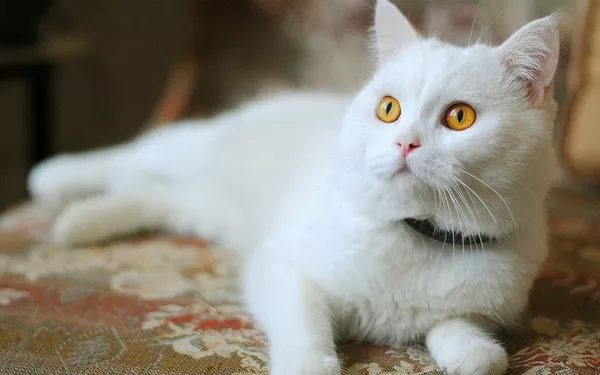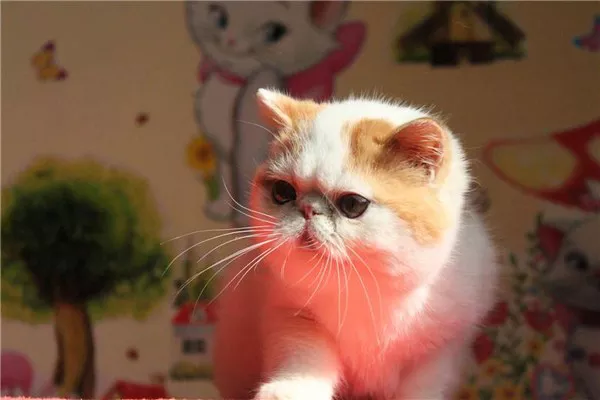The Cornish Rex is a captivating breed known for its distinctive appearance and playful personality. Among its many unique features, its slender build and wavy coat often raise questions about its weight. So, what is the average weight of a Cornish Rex?
This article delves into the fascinating world of the Cornish Rex, exploring its history, physical characteristics, and factors influencing its weight. We’ll also discuss how to maintain a healthy weight for your Cornish Rex and address common concerns related to this breed’s seemingly delicate physique.
A Brief History of the Cornish Rex
The Cornish Rex breed originated in Cornwall, England, in the 1950s. A natural mutation in a litter of barn cats resulted in kittens with short, wavy coats, unlike the typical straight fur of their siblings. This unique gene mutation led to the development of the Cornish Rex breed, which quickly gained popularity for its distinctive appearance and playful personality.
Distinctive Physical Characteristics
The Cornish Rex is easily recognizable by its unique coat. Unlike most cats, the Cornish Rex lacks the usual guard hairs, leaving only the soft, downy undercoat. This results in a remarkably soft, wavy coat that feels similar to rabbit hair.
Beyond its coat, the Cornish Rex has several other distinctive physical characteristics:
Slender Build: Cornish Rexes are slender and elegant, with long legs, a narrow head, and large, bat-like ears.
Curly Whiskers and Eyebrows: Their whiskers and eyebrows are also curly, adding to their whimsical appearance.
Large Eyes and Long Tail: Their large eyes and long, flexible tail contribute to their overall graceful and expressive look.
Understanding the Average Weight of a Cornish Rex
While the Cornish Rex appears delicate due to its slender build, it is a surprisingly athletic and muscular cat. The average weight for a healthy adult Cornish Rex typically falls between 6 and 9 pounds. However, it’s important to remember that this is just an average, and individual cats may vary in weight depending on several factors:
Gender: Male Cornish Rexes tend to be slightly larger than females.
Age: Kittens will naturally weigh less than adult cats, and senior cats may experience some weight loss.
Bone Structure: Individual cats may have slightly heavier or lighter bone structures, influencing their overall weight.
See Also:What Is the Life Expectancy of a Cornish Rex?
Muscle Mass: Cornish Rexes are active cats, and their muscle mass can contribute to their weight.
Diet and Exercise: Diet and exercise play a crucial role in maintaining a healthy weight for any cat, including the Cornish Rex.
Maintaining a Healthy Weight for Your Cornish Rex
While the Cornish Rex is not prone to obesity, it’s still important to monitor their weight and ensure they maintain a healthy lifestyle. Here are some tips:
Provide a Balanced Diet: Feed your Cornish Rex a high-quality diet appropriate for their age and activity level. Avoid overfeeding and monitor their calorie intake.
Encourage Regular Exercise: Cornish Rexes are active and playful cats. Provide them with plenty of opportunities for exercise through interactive toys, climbing structures, and regular playtime.
Regular Veterinary Checkups: Regular visits to the veterinarian will help monitor your cat’s weight and overall health.
Addressing Concerns about the Cornish Rex’s Weight
Some people may worry that the Cornish Rex is too thin due to its slender build. However, it’s important to remember that this breed is naturally lean and muscular. As long as your Cornish Rex is healthy, active, and eating a balanced diet, there is usually no cause for concern.
If you are ever concerned about your Cornish Rex’s weight, consult with your veterinarian. They can assess your cat’s health and advise you on appropriate diet and exercise plans.
Beyond Weight: The Cornish Rex Personality
While the Cornish Rex’s weight is a factor in their overall health, it’s important to remember that there’s much more to this breed than just its physique. Cornish Rexes are known for their playful, energetic, and affectionate personalities. They are highly intelligent and enjoy being involved in everything you do. Their playful antics and love for interaction make them a joy to have around.
Owning a Cornish Rex is a unique and rewarding experience. Their distinctive appearance, playful nature, and loving personality make them a cherished companion for any cat lover. By understanding their specific needs and ensuring a healthy lifestyle, you can enjoy a long and fulfilling life with your Cornish Rex, regardless of its weight.
Related Topics:
Best Brush for a Cornish Rex
What Is the Best Food to Feed a Cornish Rex?
Himalayan vs Cornish Rex: What’s the Difference?
























